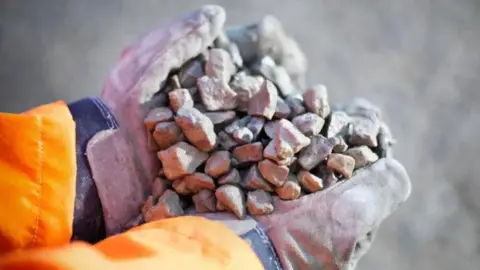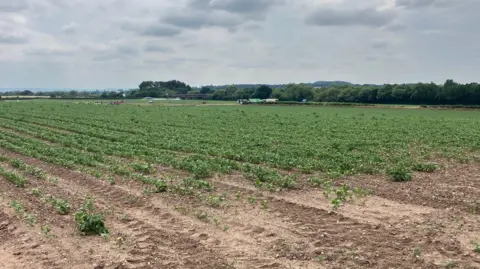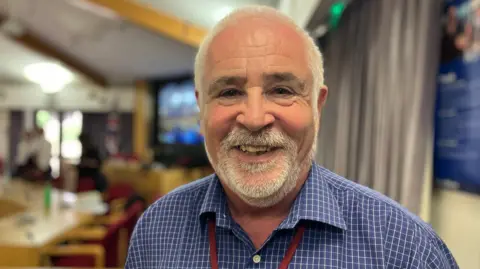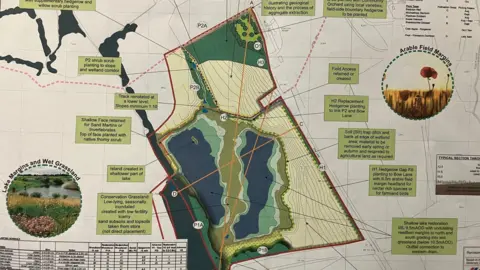Quarry gets green light amid air pollution fears
 Getty Images
Getty ImagesClose to half a million tonnes of sand and gravel will be quarried from land next to two Worcestershire villages, despite residents' fears of a risk to health from airborne dust.
Quarrying firm Cemex plans to carry out three years of excavation on farmland close to Ripple and Uckinghall, to supply what it called "critical construction supplies" for the local economy.
The works, which would extract materials to a depth of up to 5.5m, were approved by Worcestershire County Council's planning committee on Tuesday.
After the quarrying is complete, it is proposed that the site be restored to a mixture of farmland and wetland.
Operator Cemex already has a number of quarries in south Worcestershire.
The Ripple East site sits next to a previous quarry, which since 2015 has been restored as a lake.
But local residents said the new dig was too close to homes, with the nearest property approximately 40m from the proposed excavation.
"Cemex have gone one step too far," said Ripple resident Nick Harknett, who spoke at the planning committee hearing on Tuesday morning.

While he said he appreciated the benefits of operations at the first site, Mr Harknett stressed residents' fears of the dangers of dust pollution, particularly from silica found within the ground.
Inhalation of the very fine particles has been linked to lung diseases such as silicosis and cancer.
"Silica is the new asbestos… you're playing with people's lives here," he told the meeting. "This site is too close to the villages."
He urged county councillors to reject the plans, despite them being recommended for approval by officers.
"Airborne silica can be taken directly into the lungs," said Green councillor Martin Allen, who represents the local division and who proposed the application's refusal.

Allen argued the project's impact on the local community would fail to meet the objectives of the county's mineral extraction plan.
"Other countries warn about residents living near quarries' exposure to risk," he said.
"We used to have a 200-metre exclusion zone under the old mineral extraction plan."
In a vote, Allen's motion was defeated. In a subsequent vote, councillors then approved the application.

"There's no basis for talking about silicosis in the way that's been put forward today," said Rich Marsden, Cemex's development manager.
He said no cases of the disease had been associated with the sand and gravel industry and that it was not a risk for the general population.
"We are the most heavily regulated industry in the country," added Mark Kelly, Cemex's UK planning manager.
He stressed the site's importance in supplying the local construction sector with building materials.
In an written submission, the county's public health team raised no objections to the proposal.
While an officer stated they did have some concerns regarding the cumulative effect on air quality of two quarries operating simultaneously, they highlighted a mitigation plan would be put in place to protect residents' health.
"Silica is one of the most common materials on the planet… this proposed extraction is not considered to represent a high risk," said Steve Aldridge, the county council's development manager.
 Cemex/Worcestershire County Council
Cemex/Worcestershire County CouncilSand and gravel excavated from the Ripple East site would be transported by barge about two miles up the River Severn to Cemex's Ryall concrete plant, also close to where the firm has submitted another application for extraction.
Work on the Ripple East site is also expected to take place at the same time as another firm, Cullimore, begins quarrying on the other side of the M50 motorway.
"We already have at least seven quarries in our small parish, either completed, active or in the planning stage," said resident Jessica Wardle before the meeting.
"Our villages may soon be islands in a sea of quarries," she said.
Follow BBC Hereford & Worcester on BBC Sounds, Facebook, X, and Instagram.
